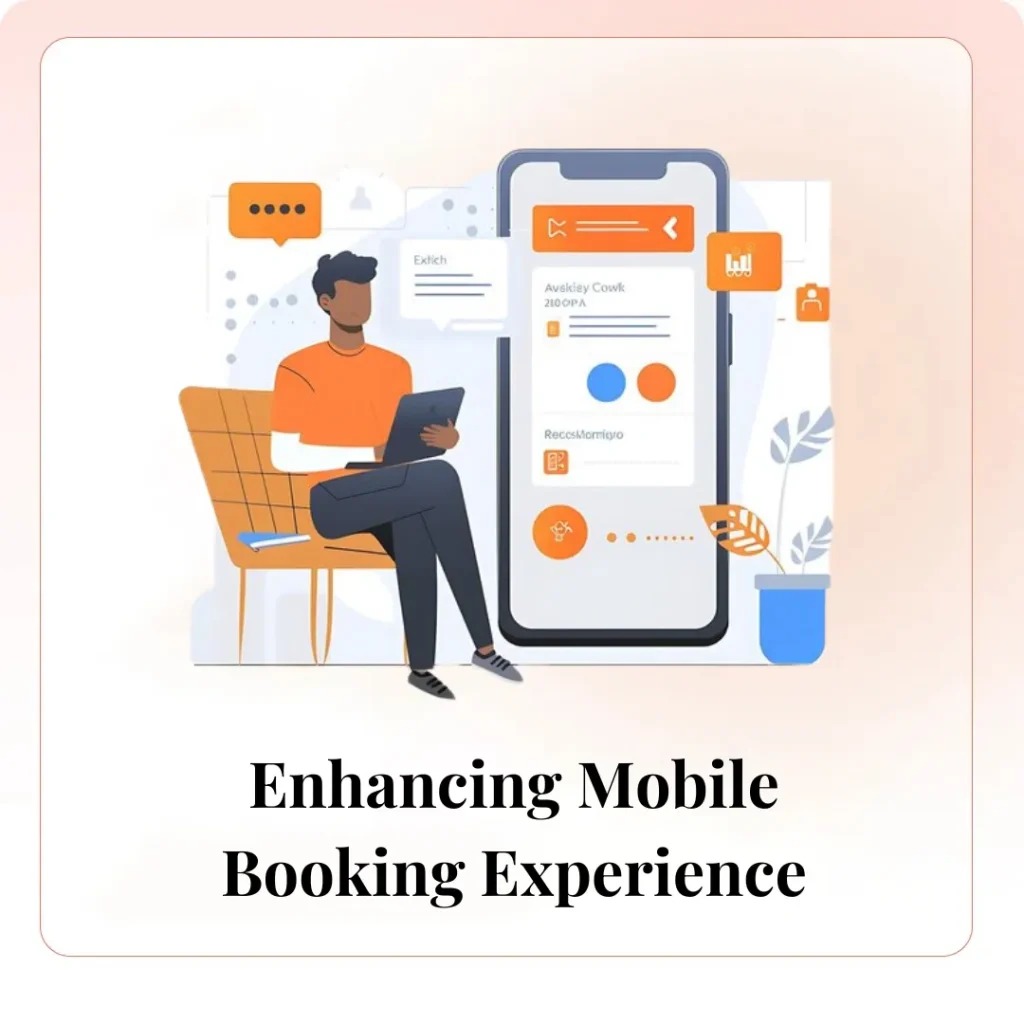In today’s digital age, the hospitality industry is increasingly reliant on mobile technology to attract and retain customers. As more users turn to their smartphones to book accommodations, check travel plans, or explore dining options, optimizing your website for mobile conversions has never been more crucial. This blog will guide you through key strategies to enhance your website for mobile conversions, ensuring you stay ahead in the competitive hospitality market. Additionally, we’ll highlight why working with the Best digital SEO agencies in Mumbai can significantly boost your efforts.
Understanding the Mobile User Journey
The first step in optimizing your website for mobile conversions is understanding the mobile user journey. Mobile users often have different behavior patterns compared to desktop users. They typically look for quick, concise information and easy navigation. In the hospitality sector, this might mean simplified booking processes, quick access to customer reviews, and responsive design that adapts to various screen sizes.
1. Importance of Mobile-Friendly Design
A mobile-friendly design is paramount for improving user experience and conversion rates. This involves creating a responsive design that automatically adjusts to fit the screen size of the device being used. Key elements to focus on include:
- Simplified Navigation: Ensure that menus are easy to access and navigate with a few taps.
- Fast Load Times: Mobile users are often on the go and may have limited patience for slow-loading pages. Optimize images and use accelerated mobile pages (AMP) to enhance load times.
- Readable Fonts and Buttons: Text should be easily readable without zooming in, and buttons should be large enough for users to tap without difficulty.

2. Optimizing for Local Search

For hospitality businesses, local search optimization is critical. Potential customers often search for hotels, restaurants, or attractions near their current location. To optimize for local search:
- Claim Your Google My Business Listing: Ensure your business information is accurate and up-to-date.
- Use Local Keywords: Incorporate local keywords into your content and meta descriptions to increase visibility in local searches.
- Encourage Reviews: Positive reviews can significantly influence potential customers. Make it easy for satisfied guests to leave reviews on platforms like Google and TripAdvisor.
3. Enhancing Mobile Booking Experience
A seamless booking experience is essential for converting mobile users. Here are some strategies to improve your mobile booking process:
- Streamlined Booking Forms: Simplify booking forms by reducing the number of fields and using auto-fill features.
- Secure Payment Options: Offer multiple secure payment methods that are optimized for mobile use.
- One-Click Booking: Implement one-click booking features for returning customers to expedite the process.

4. Leveraging Visual Content

Visual content is particularly important in the hospitality industry, as it allows potential customers to visualize their experience. Optimize visual content for mobile by:
- Using High-Quality Images: Ensure images are high resolution but optimized for quick loading.
- Incorporating Videos: Short, engaging videos can showcase your property or services effectively. Ensure videos are mobile-friendly and have captions for users who prefer to watch without sound.
- Interactive Elements: Virtual tours or 360-degree views can provide an immersive experience, helping customers make informed decisions.
5. Implementing Mobile SEO Strategies
Effective mobile SEO is crucial for improving your website’s visibility and driving conversions. Here are some key strategies:
- Mobile-First Indexing: Google now uses mobile-first indexing, meaning it primarily uses the mobile version of your site for ranking and indexing. Ensure your mobile site is as robust as your desktop version.
- Optimize for Voice Search: With the rise of voice-activated assistants, optimizing for voice search can help capture this growing segment. Use natural language and long-tail keywords that reflect how people speak.
- Schema Markup: Implement schema markup to provide search engines with detailed information about your site, improving how your content appears in search results.

6. Personalizing the User Experience

Personalization can significantly enhance the mobile user experience, leading to higher conversion rates. Utilize data to personalize interactions:
- Tailored Content: Use cookies and tracking to offer personalized content based on user preferences and past behavior.
- Location-Based Offers: Leverage geolocation to provide location-specific offers or suggestions.
- Dynamic Pricing: Offer dynamic pricing based on demand and user history to maximize conversions.
7. Analytics and Continuous Improvement
Optimizing your website for mobile conversions is an ongoing process. Regularly analyze performance metrics to identify areas for improvement:
- Use Analytics Tools: Tools like Google Analytics can provide valuable insights into user behavior, conversion rates, and bottlenecks in the user journey.
- A/B Testing: Regularly conduct A/B testing on different elements of your mobile site to determine what works best.
- Feedback Loops: Encourage user feedback to understand pain points and areas for enhancement.

8. Partnering with the Best SEO Agencies
Achieving optimal mobile conversions requires expertise in both web design and SEO. Partnering with the Best digital SEO agencies in Mumbai can provide you with the necessary skills and knowledge. These agencies specialize in:
- Tailored SEO Strategies: Developing customized SEO strategies that align with your business goals.
- Comprehensive Audits: Conducting detailed website audits to identify and rectify issues affecting mobile performance.
- Content Optimization: Crafting high-quality, SEO-friendly content that engages mobile users.
- Technical Expertise: Ensuring your website meets all technical requirements for mobile optimization.
Conclusion
Optimizing your website for mobile conversions is a multifaceted process that involves enhancing user experience, leveraging local search, and implementing effective mobile SEO strategies. By understanding the mobile user journey and continuously improving your mobile site, you can stay competitive in the hospitality industry. Partnering with the Best SEO agency of Mumbai can provide the expertise needed to achieve your mobile optimization goals, ensuring your business stands out in the crowded digital landscape.
For comprehensive mobile optimization and SEO services, consider collaborating with a leading SEO agency in Mumbai. They can help you navigate the complexities of mobile SEO and drive conversions, ultimately contributing to the success of your hospitality business. For more information, visit mumbai.osumare.com.

